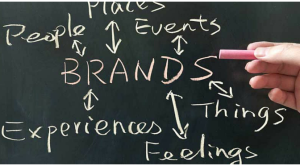Why do we gravitate towards certain brands while actively avoiding others? What is causing the rise in “lifestyle” branding? When does a brand become something more than just a brand?
The answers to these questions could be the basis for an entire blog series, but for this one, we are going to focus on the common theme that runs throughout all of the answers: creating a brand that connects with your audience.
This strategy fits mainly with corporate and organizational branding, with less of an impact toward individual product branding. While those brands can and should still work toward emotional connectivity, the organization and corporate brand presents a more overarching opportunity to become more than just a brand to its audience.
When creating these types of brands, take stock of which characteristics rise to the top with the least amount of effort. A brand persona should come naturally, as it represents a brand’s very core of characteristics, ones that will easily be identified as being constructed and unnatural to the overall branding strategy. For smaller organizations especially, creating a brand that mirrors your personality and can become an extension of yourself can help drive it forward much more effortlessly.
It is in our nature to connect and prioritize those things we relate to, and those things we enjoy. Brands are the same way. It’s why emotional connectivity is so important for brands – their consumers will instinctively be drawn to their brand if there exists an emotional or personal connection.
From a brand perspective, it’s difficult to take steps toward connecting with the audience and presenting a brand that holds certain characteristics if it doesn’t resonate with who you are. To touch on the lifestyle brand topic, the most successful examples are those with founders/owners/executives to live the brand – for instance, if the brand persona is one of laid back, relaxed, eternal vacation living but their founder comes across as buttoned-up, consistently high-strung and stressed out, then the brand will lose emotional authenticity with its audience.
Additionally, your employees are the most prominent proponents of the brand – each day, to effectively advance the brand, they must live the persona and buy into what the brand represents. Again, an inauthentic brand character will have a negative impact that could be difficult to overcome.
So if you’re looking to create a brand that has strong emotional connectivity ability and ties in with your personality, find out what makes you, you. Likes, dislikes, lifestyle, goals, aspirations – all of these are important pieces to help determine your brand. Successfully accomplish this area of brand development, and living the brand will be as easy as living your life.
Learn more about building your best brand by downloading this FREE webinar, “Identifying The Opportunities In Your Brand Portfolio – Are You Capitalizing On Every Potential Business Opportunity Your Portfolio Provides?”
